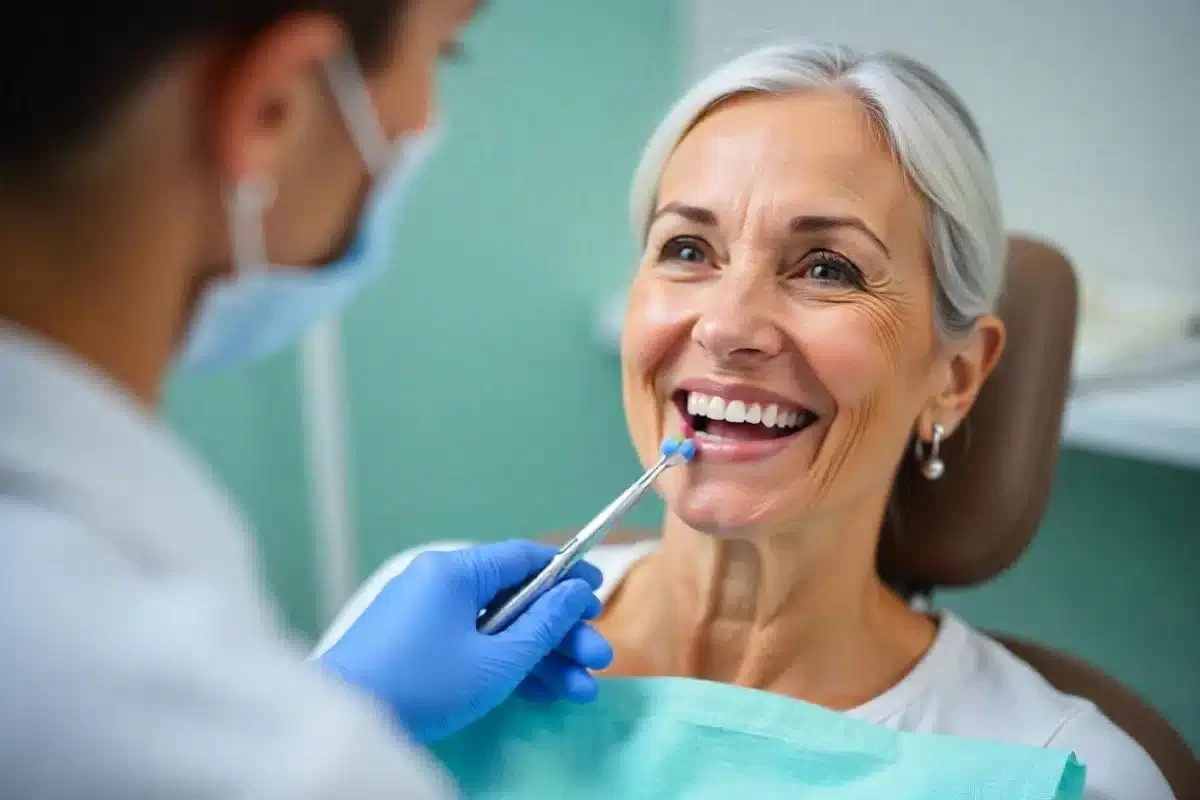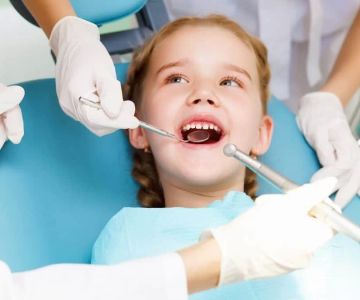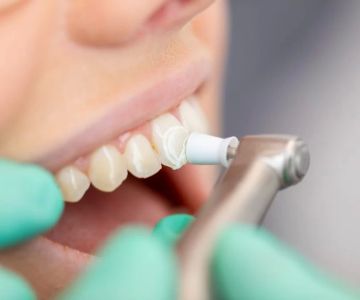
Protecting Smiles: Essential Gum Disease Prevention for Elderly Individuals
As we navigate the journey of life, our bodies undergo various changes, and our oral health is no exception. For elderly individuals, maintaining good oral health, particularly preventing gum disease, is not just about having a nice smile; it’s a crucial component of overall well-being. In the United States, gum disease, also known as periodontal disease, affects a significant portion of the senior population, often leading to tooth loss and other serious health complications. According to the Centers for Disease Control and Prevention (CDC), nearly half of adults aged 65 and older in the U.S. have some form of periodontal disease. This condition, characterized by inflammation and infection of the gums and supporting tissues, can significantly impact an individual’s ability to eat comfortably, speak clearly, and maintain a sense of self-confidence. The challenges faced by elderly individuals in preventing gum disease are varied, including physical limitations, cognitive impairments, and the side effects of various medications that can lead to dry mouth, exacerbating oral health issues. Moreover, the systemic link between oral health and other medical conditions like heart disease, diabetes, and respiratory illnesses means that preventing gum disease in seniors has implications far beyond just the mouth. It is crucial for families, caregivers, and dental professionals to collaborate in implementing proactive strategies that prioritize oral health in the elderly. This begins with understanding the underlying causes of gum disease and adopting effective preventive measures tailored to the unique needs of this vulnerable population. At Dentistry Toothtruth, we are committed to providing resources and support to ensure that elderly individuals receive the best possible oral care, helping them lead healthier, more fulfilling lives. This article will delve into the causes of gum disease in the elderly, practical strategies for prevention, and actionable advice for caregivers, aiming to improve senior oral health nationwide.
Understanding the Causes of Gum Disease in the Elderly
The development of gum disease, or periodontal disease, in elderly individuals is a complex process influenced by multiple factors. It's crucial to first understand the root causes to better tailor preventive efforts for seniors. The primary culprit behind gum disease is bacterial plaque, a sticky film that constantly forms on teeth. This plaque contains bacteria that produce toxins, which irritate the gums, leading to inflammation. While plaque buildup is a common issue for everyone, certain age-related conditions and lifestyle factors make elderly individuals more susceptible to developing gum disease. One of the key factors is the weakening of the immune system that naturally occurs with aging. This means that older adults may have a reduced capacity to fight off the bacterial infections that trigger gum disease. Additionally, chronic diseases, which are more prevalent in the elderly, can exacerbate gum problems. For instance, diabetes is known to increase the risk of infections, including periodontal disease, and make it more difficult to manage. Uncontrolled blood sugar levels can lead to more severe gum inflammation and a slower healing process. Furthermore, the use of certain medications, which are often necessary for managing chronic conditions, can have significant side effects on oral health. Many medications, particularly those used to treat depression, anxiety, and high blood pressure, can cause dry mouth (xerostomia). Saliva plays a vital role in neutralizing acids, washing away food particles, and keeping bacteria under control. A lack of saliva creates an ideal environment for harmful bacteria to thrive, accelerating the formation of plaque and the progression of gum disease. Physical limitations and cognitive impairments also play a role. Conditions like arthritis can make it difficult for older adults to effectively brush and floss their teeth, leading to the accumulation of plaque and an increased risk of gum problems. Cognitive conditions, such as dementia or Alzheimer's, can cause individuals to forget or neglect oral hygiene routines. Other lifestyle factors, including smoking and a poor diet high in sugars and processed foods, can also contribute to the development of gum disease. Smoking, in particular, impairs the body's ability to heal and fight infections, making it a major risk factor for periodontal disease. By understanding these multifaceted causes, caregivers and healthcare professionals can adopt a more targeted and effective approach to preventing and managing gum disease in the elderly, promoting better overall health and well-being.
The Cornerstone of Gum Disease Prevention: Daily Oral Hygiene
Consistent daily oral hygiene practices are foundational in preventing gum disease among elderly individuals. These routines must be meticulously adhered to and, when necessary, adapted to meet the unique challenges faced by older adults. At the heart of any effective oral hygiene regimen lies the act of brushing. Elderly individuals should aim to brush their teeth at least twice a day, using a soft-bristled toothbrush. Soft bristles are crucial as they are gentler on the gums and help prevent damage and irritation, which can exacerbate gum disease. The American Dental Association (ADA) recommends using a fluoride toothpaste, which helps strengthen tooth enamel and makes it more resistant to acid attacks from bacteria. The brushing technique also plays a critical role. Older adults, especially those with physical limitations, should be taught to use gentle, circular motions rather than aggressive scrubbing, which can damage the gums and cause them to recede. The duration of brushing should be at least two minutes, ensuring that all tooth surfaces are thoroughly cleaned. Power toothbrushes can be beneficial for seniors with dexterity issues, as they require less manual effort while still achieving effective cleaning. In addition to brushing, flossing is a critical step that is often neglected but is essential for removing plaque and food particles from between the teeth, where a toothbrush cannot reach. Interdental brushes or floss picks may be easier for some seniors to handle compared to traditional floss, offering a good alternative. If dexterity issues are a significant barrier, caregivers should assist with flossing to ensure it is done correctly and consistently. It's also important to address the issue of dry mouth, which, as discussed earlier, can increase the risk of gum disease. Encouraging elderly individuals to stay hydrated by drinking plenty of water throughout the day can help stimulate saliva production. Sugar-free gum or lozenges can also help with this, as chewing promotes saliva flow. The use of a moisturizing mouthwash can provide additional relief and prevent dryness. Moreover, regular checks of oral hygiene supplies are important. Toothbrushes should be replaced every three to four months, or sooner if the bristles appear worn. Toothpaste and mouthwash should be checked for expiration dates. Consistent monitoring of oral hygiene supplies ensures that seniors have the right tools to maintain good oral health. Implementing these practices daily can significantly reduce the risk of gum disease and protect the oral health of elderly individuals.
The Power of a Balanced Diet for Gum Health in Seniors
While meticulous oral hygiene is crucial, a balanced diet plays a significant role in promoting gum health in elderly individuals. Just as the body needs the right nutrients to function optimally, gums require specific vitamins and minerals to stay healthy and resist infection. A diet rich in fruits, vegetables, and whole grains provides essential nutrients that support overall health and help reduce inflammation, which is a major factor in gum disease. Specifically, Vitamin C is crucial for maintaining healthy gum tissue. It plays a key role in the formation of collagen, the protein that provides structure to the gums. A deficiency in Vitamin C can lead to swollen, bleeding gums, making them more susceptible to infection. Citrus fruits, berries, and leafy greens are excellent sources of Vitamin C. Vitamin D, often associated with bone health, also plays a role in gum health. It can help reduce inflammation and aid in the healing process. Exposure to sunlight and fortified foods like milk and cereals can help maintain adequate levels of Vitamin D. Calcium, another essential mineral for bone health, is also important for the teeth and jawbone, which support the gums. Foods like dairy products, leafy greens, and fortified plant-based milks are rich sources of calcium. Omega-3 fatty acids, found in fatty fish like salmon, flax seeds, and walnuts, have anti-inflammatory properties that can help reduce the severity of gum disease. Incorporating these foods into the diet can help support the body's natural defense mechanisms against infection. However, a diet high in sugary and processed foods can worsen gum health. Sugary foods contribute to the buildup of plaque, which is the primary culprit behind gum disease. Processed foods are often high in refined carbohydrates, which can also promote inflammation in the body, including the gums. Encouraging elderly individuals to limit their intake of sugary snacks, sodas, and processed foods can significantly improve their oral health. Moreover, it's important to consider any dietary restrictions or difficulties seniors may have. For instance, individuals with chewing or swallowing difficulties may require softer foods that are still nutrient-rich. If nutritional deficiencies are suspected, consulting with a doctor or nutritionist can help develop a balanced meal plan that meets all of their nutritional needs. Ultimately, a diet that's rich in essential nutrients and low in sugars and processed foods can be a powerful tool in preventing gum disease and protecting the oral health of elderly individuals, working in tandem with regular oral hygiene practices.
The Crucial Role of Regular Dental Check-Ups for Seniors
While a proactive home care routine is vital, regular dental check-ups are an indispensable component of gum disease prevention for elderly individuals. Professional dental care allows for the early detection and treatment of oral health problems, preventing them from escalating into more severe conditions. The American Dental Association (ADA) recommends that adults visit their dentist at least once a year, but seniors with specific risk factors may need to be seen more frequently. Dental professionals can assess the condition of the gums, detect early signs of inflammation or infection, and administer professional cleanings to remove plaque and tartar buildup, which are difficult to eliminate with regular brushing and flossing alone. They can also identify other risk factors, such as dry mouth or ill-fitting dentures, and make necessary adjustments to mitigate these concerns. Moreover, a dental check-up provides an opportunity for education and guidance. Dentists can offer tailored advice on brushing techniques, flossing methods, and the use of mouthwash, which are especially important for older adults who may have limited mobility or cognitive issues. They can also assess whether power toothbrushes or other adaptive tools might be beneficial. Dental professionals can also provide specific advice about dental products, such as toothpaste and mouthwash that are appropriate for people with gum problems. In addition to the physical check-up, a thorough review of an individual’s medications, medical history, and any risk factors is crucial during a dental appointment. This enables a dentist to provide treatment recommendations that are aligned with an individual’s needs. Additionally, regular X-rays can be critical in detecting bone loss and other underlying issues that are not visible during a visual exam. Regular appointments ensure the dentist can help identify any early warning signs, enabling more timely and effective intervention. Moreover, regular dental check-ups also provide opportunities for screening for oral cancer and other serious conditions. Early detection of oral cancer can greatly improve the prognosis of the disease, highlighting the critical role of routine exams. When combined with diligent home care and proper nutrition, regular dental check-ups help maintain oral health and address problems before they become more severe, ensuring better long-term well-being for the elderly.
Practical Advice for Caregivers to Support Senior Oral Health
Caregivers play a vital role in ensuring the oral health of elderly individuals, often providing the necessary support and assistance that older adults may need. Effective gum disease prevention for seniors is as much about caregiver involvement as it is about individual effort. Understanding the specific needs of those they care for and adapting their approach to meet those needs is crucial. One of the primary responsibilities of caregivers is to ensure that elderly individuals maintain a regular oral hygiene routine. This involves assisting with or supervising daily brushing and flossing, and making sure that it is being done effectively. For individuals with physical limitations, such as arthritis or tremors, adaptive tools like electric toothbrushes, modified toothbrush handles, or floss picks may be beneficial. Caregivers can also help with the application of toothpaste or guiding the brush as needed. Creating a consistent routine is crucial, making sure brushing and flossing are done at the same times each day to ensure that proper hygiene is maintained. Moreover, caregivers should regularly inspect the oral cavity for any signs of gum disease, such as redness, swelling, or bleeding, and notify a dentist if any issues are observed. This means regularly observing the individual’s mouth for any changes, and keeping a record of any issues that arise. If a senior wears dentures, caregivers need to make sure they are cleaned daily, removed at night, and fitted comfortably. Poorly fitted dentures can irritate the gums and cause significant discomfort, which can lead to an increased risk of gum disease. Cleaning dentures with a specialized brush and solution is crucial to prevent bacteria buildup and ensure that they are comfortable. In addition to assisting with direct care, caregivers can encourage healthy eating habits by ensuring the elderly individual has access to a balanced diet rich in fruits, vegetables, and whole grains, while limiting their intake of sugary snacks and processed foods. Proper hydration is also vital to combat dry mouth, so encouraging water consumption throughout the day is important. Caregivers can work with doctors and dieticians to create meal plans to support both general and dental health. Regular communication with dental professionals is also crucial. Caregivers should make sure that the senior has access to regular dental check-ups and should accompany the senior to these visits whenever possible, to gain a better understanding of their needs and treatment plans. By understanding the specific needs of each individual, caregivers can work in close collaboration with healthcare providers to ensure seniors receive the best possible oral care. They can become strong advocates for the seniors that they help, ensuring they receive the best possible care to promote overall wellbeing. Caregivers are essential to the oral health and well-being of elderly individuals, making their role a very important one.
Taking Action: A Comprehensive Approach to Gum Disease Prevention
Preventing gum disease in elderly individuals requires a multifaceted approach that combines individual effort, caregiver support, and professional dental care. The key to success is consistency and a proactive approach. Firstly, individuals should make it a priority to maintain a regular oral hygiene routine, which includes brushing at least twice a day with a soft-bristled toothbrush and fluoride toothpaste, and flossing daily, and using an antimicrobial mouthwash. Choosing the correct products, and ensuring the routines are being followed, is key to maintaining a healthy mouth. If dexterity or mobility is an issue, modified tools or caregiver assistance should be utilized to ensure these daily routines are completed effectively. The inclusion of a balanced diet that is rich in vitamins, minerals, and omega-3 fatty acids, and low in sugars and processed foods, is also important to support gum health. Caregivers can play a role in meal planning and preparation, ensuring that seniors have access to nutritious food. Moreover, staying hydrated and avoiding smoking are essential lifestyle choices that support not only gum health but also overall well-being. Regular dental check-ups, at least once a year, provide an important opportunity for early detection, professional cleaning, and tailored advice. Regular check-ups are a crucial part of any treatment plan, and the dentist can act as a partner in providing overall oral care. When issues or concerns arise, such as dry mouth or bleeding gums, they should be addressed promptly with a dentist or medical professional. Early intervention can prevent a problem from escalating into a more serious condition. In addition to all the above mentioned methods, education and awareness are vital components of any prevention strategy. Seniors, caregivers, and health care providers should be informed of the risks and causes of gum disease and the best practices for preventing and managing it. This type of education can help ensure everyone is aware of the risks and prevention methods. By integrating these strategies into a comprehensive prevention plan, elderly individuals can enjoy healthier gums and a higher quality of life. At Dentistry Toothtruth, we offer resources and guidance to support seniors and their caregivers in achieving and maintaining optimal oral health. Taking action today can secure a brighter, healthier smile for the years to come. Contact us today to learn more about how we can help.






 Westgate Dental Arts
Westgate Dental Arts Coventry Family Dental
Coventry Family Dental Familia Dental
Familia Dental Dr. Daniel S. Fife, DDS
Dr. Daniel S. Fife, DDS Dentistry At Suburban Square: Michael I. Wollock, DMD
Dentistry At Suburban Square: Michael I. Wollock, DMD Comfort Care Dental
Comfort Care Dental The Importance of Oral Health Education During Pregnancy for a Healthy Pregnancy
The Importance of Oral Health Education During Pregnancy for a Healthy Pregnancy Best Tips for Brushing Your Teeth Properly for Healthy Gums: Essential Techniques for Oral Health
Best Tips for Brushing Your Teeth Properly for Healthy Gums: Essential Techniques for Oral Health Why Skipping Dental Checkups Can Lead to Bigger Oral Health Problems
Why Skipping Dental Checkups Can Lead to Bigger Oral Health Problems Advantages of Porcelain Dental Restorations
Advantages of Porcelain Dental Restorations How Can Diabetes Cause Tooth and Gum Problems? Preventing and Managing Oral Health Issues
How Can Diabetes Cause Tooth and Gum Problems? Preventing and Managing Oral Health Issues Healthy Habits for Promoting Good Oral Health and Hygiene: Tips for a Healthy Smile
Healthy Habits for Promoting Good Oral Health and Hygiene: Tips for a Healthy Smile